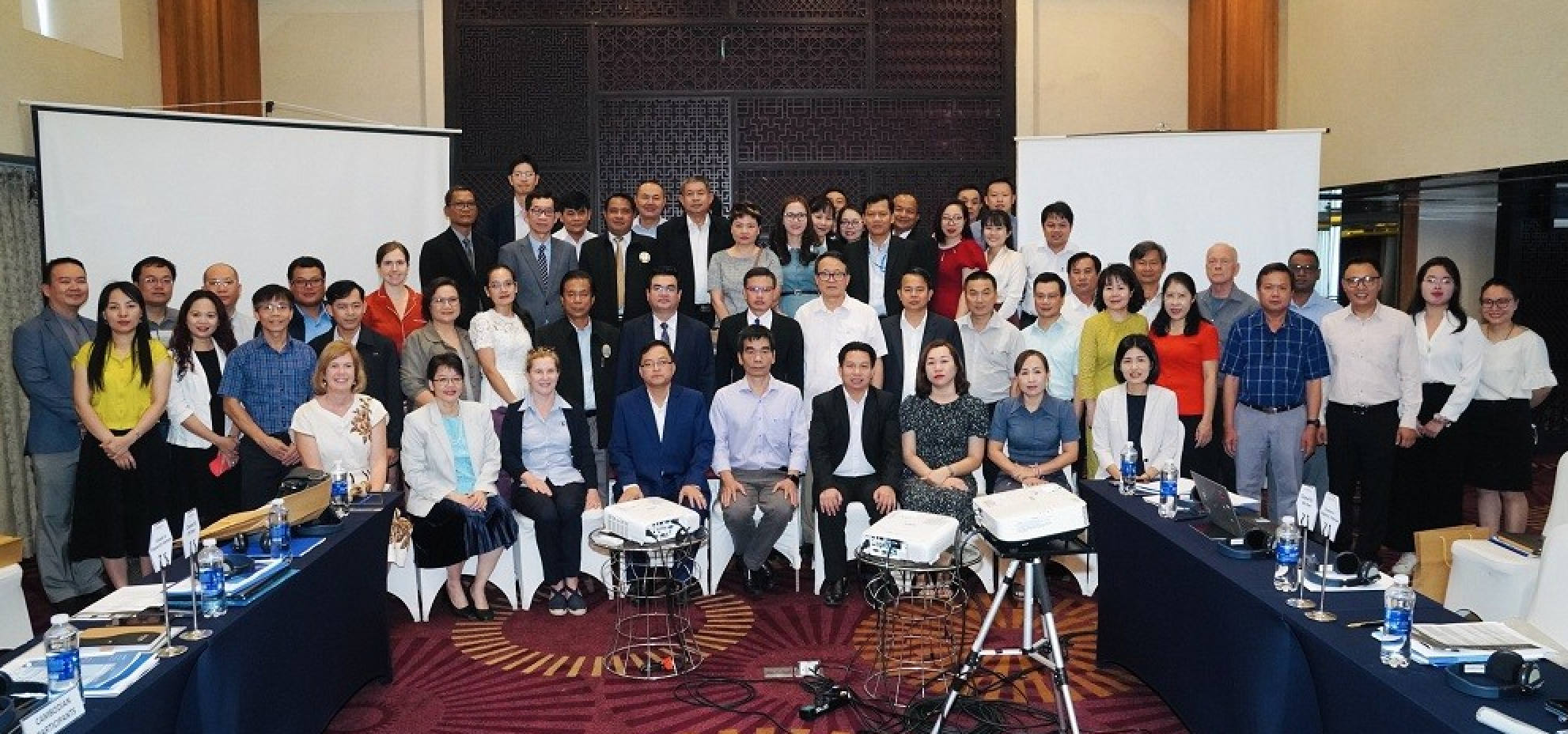Vietnam and Cambodia are two countries facing the burden of tuberculosis. Although there has been significant progress in reducing the incidence of tuberculosis, both countries face a lack of financial resources to completely eliminate tuberculosis.
Cross-border TB treatment is also challenged by losing track of TB patient treatment due to high variability, inadequate information sharing, and lack of a monitoring system for patients migrating across borders.
In that context, on May 19, the International Organization for Migration (IOM) coordinated with the Vietnam National Tuberculosis Program, the Central Lung Hospital, the Ministry of Health of Vietnam and the Center for Prevention and Control of Tuberculosis and Leprosy of Cambodia (CENAT) launched the "Tuberculosis Control Project in Vietnam and Cambodia Border Areas" phase 2.

The objective of this project is to increase migrants' access to TB diagnostic and treatment services, in line with regional and global commitments. In addition, the project will pilot the cross-border patient transfer system in An Giang and Tay Ninh provinces of Vietnam and Takeo and Svay Rieng of Cambodia and strengthen partnerships between health departments in these provinces through the establishment of a TB/HIV Technical group.
According to the 2022 World Health Organization (WHO) Report, Vietnam was still one of the 30 countries with the highest global burden of tuberculosis (TB) and multidrug-resistant tuberculosis (MDR-TB), while Cambodia was no longer on the WHO global list of 30 countries with high TB burden (2021-2025) and is currently on the watch list.
People who frequently travel across borders often have difficulty accessing health care services due to lack of health insurance, language barriers, and limited understanding of the health care system in the destination country and being discriminated against. These obstacles can delay TB diagnosis and treatment, interrupt the treatment process, and lead to poor treatment outcomes and drug resistance (MDR-TB).
The IOM has collaborated with the Vietnam National Tuberculosis Program and the Cambodian Center for Tuberculosis and Leprosy Prevention to conduct research to understand the barriers and facilitating factors that migrants in border areas encounter in accessing and using TB diagnosis and treatment services for border migrants in the 4 provinces mentioned above.
Accordingly, the diagnosis and treatment of tuberculosis for cross-border migrants faces three main barriers. The first is the structural barrier. Health education and communication programs are limited, with a lack of interpreters and medical staff to guide them, and waiting times are too long. Second is the financial barrier. Tuberculosis treatment becomes a financial burden for cross-border migrants, who have no health insurance and treatment and diagnosis costs are high. Finally, there is a cognitive barrier: people with tuberculosis lack knowledge and are stigmatized and discriminated against.
The results of this study will aim to support relevant health agencies of the two countries to develop cooperative activities to control tuberculosis in the border area between Vietnam and Cambodia.
The importance of healthy migrants to a thriving economy
Speaking at the launching ceremony of phase 2 of the Project, Ms. Park Mihyung, Head of the IOM Delegation to Vietnam, emphasized that ensuring the health of migrants requires comprehensive efforts among countries participating in the migration process.
"It is important to develop and improve a migrant-sensitive referral system to support border migrants with tuberculosis and facilitate the establishment of local rapid response forces to tuberculosis and HIV/AIDS in An Giang, Tay Ninh, Svay Rieng and Takeo provinces. This will ensure uninterrupted tuberculosis treatment for migrants in border areas thanks to all medical networks in this area," Ms. Park Mihyung emphasized.
According to the assessment of the head of the IOM delegation in Vietnam, these efforts show the importance of healthy migrants to a prosperous economy.
It is known that efforts to ensure the health of migrants are recognized by the World Health Assembly as an important global health goal and a foundation of the Sustainable Development Goals. The project is also associated with the implementation of Decision No. 5608/QD-BYT on the plan to implement the Global Agreement on Migration issued by the Ministry of Health in December 2020.
Hong Son - Pham Tran Giao Linh - Vu Thi Hue